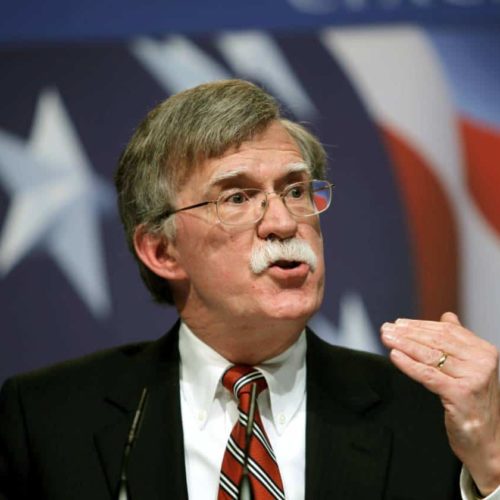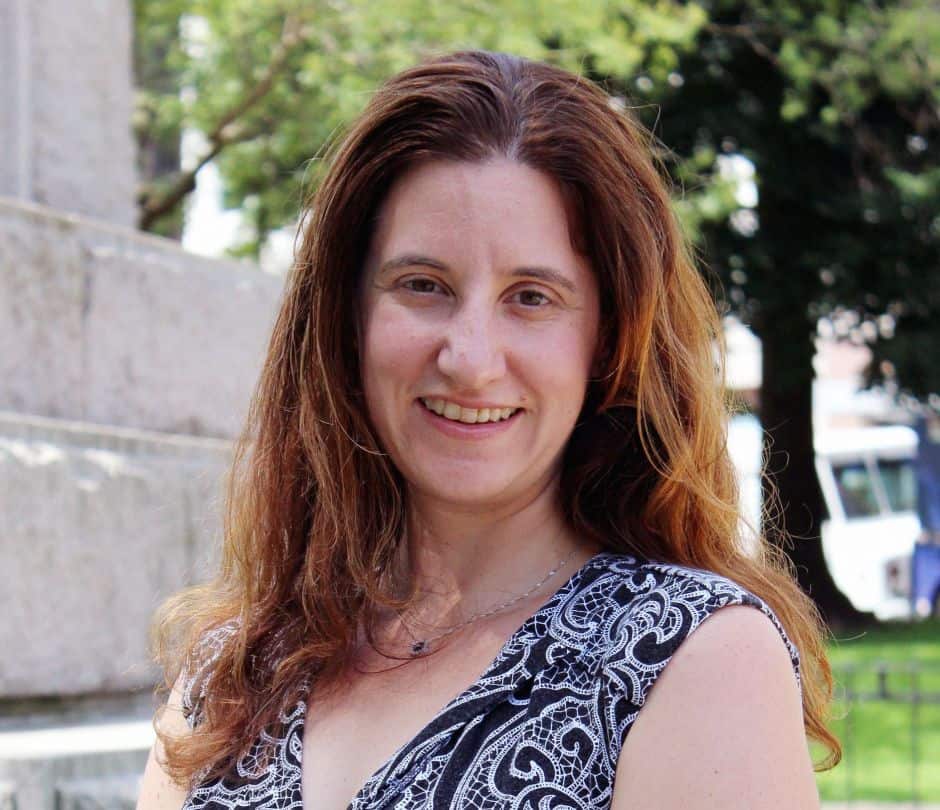Introduction
March 23, 2018: This story has been updated.
If President Donald Trump taps John Bolton as his next national security adviser, the former U.N. ambassador will be forced to reckon with the fate of his political empire, which includes a super PAC that has spent heavily on the services of embattled voter profiling company Cambridge Analytica.
Bolton’s super PAC has paid Cambridge Analytica more than $1.1 million since 2014 for “research” and “survey research,” a Center for Public Integrity analysis of campaign finance filings shows.
So far during the 2018 election season, Bolton has announced his super PAC will spend $1 million boosting Republican Senate candidate Kevin Nicholson in Wisconsin. Nicholson is challenging incumbent Sen. Tammy Baldwin, a Democrat.
Bolton’s super PAC spent roughly $2.5 million during the 2016 election cycle to support the bids of Republican U.S. Senate candidates, according to Federal Election Commission filings. The press release announcing support for Nicholson said that “Ambassador Bolton looks to increase those contributions for the 2018 midterm elections.”
Bolton — eyed to replace Army Lt. Gen. H.R. McMaster as national security adviser should McMaster step down or be fired — would be the latest in a string of Trump administration insiders with strong links to big-spending, conservative political groups largely funded by an elite group of megadonors. It’s a list that includes Kellyanne Conway, a counselor to the president; White House Director of Legislative Affairs Marc Short; and Nick Ayers, the vice president’s chief of staff.
Bolton, who visited the White House last week, would also be the latest Trump official with ties to GOP megadonor Robert Mercer, a key supporter of Trump’s presidential bid and investor in Cambridge Analytica who is also the largest donor to Bolton’s super PAC.
(Update, March 23, 2018, 9:55 a.m.: On March 22, Trump announced Bolton would be his new national security adviser. Mr. Bolton’s PAC spokeswoman, Sarah Tinsley, did not respond to an additional query from the Center for Public Integrity on plans for the John Bolton super PAC or PAC.
“We shouldn’t have people in what are supposed to be apolitical positions in the White House running super PACs attacking members of Congress in charge of holding the administration and their national security decisions accountable,” said Adam Smith, a spokesman for Every Voice, a nonprofit advocacy group that supports limits on money in politics. “This administration doesn’t need another conflict of interest. He needs to shut both his super PAC and traditional PAC down immediately.”)
Said Paul Ryan, vice president for policy and litigation at the nonprofit watchdog group Common Cause: “All of this makes clear that the Supreme Court was wrong in Citizens United when it unleashed big money in our elections with the promise it would be independent of candidates and office holders.”
Bolton’s super PAC was among the first political committees to report paying Cambridge Analytica, the voter profiling company in which Mercer is an investor.
Last week, the New York Times and The Observer of London jointly reported that Cambridge Analytica had misused data gleaned from the profiles of tens of millions of Facebook users.
Facebook suspended Cambridge Analytica and its parent company, citing concerns that it had failed to delete improperly obtained data. Cambridge Analytica said the data was improperly obtained by a contractor and has been deleted. It also said none of that data “was used by Cambridge Analytica as part of the services it provided to the Donald Trump 2016 presidential campaign.”
But the statement did not specifically address whether the data was used to provide services to other political committees that retained Cambridge Analytica, including Bolton’s super PAC.
In a related matter, Special Counsel Robert Mueller, who is investigating Russian involvement in the 2016 presidential election, in December asked Cambridge Analytica to turn over emails of any employees who worked on Trump’s presidential campaign.
Cambridge Analytica did not respond to questions from the Center for Public Integrity. Bolton did not respond to an interview request submitted through his PAC, or to questions regarding whether he was investigating whether Cambridge Analytica used improperly obtained data in its work for his super PAC.
As of Feb. 28, Bolton’s two political groups — the John Bolton Super PAC and John Bolton PAC — reported $3.6 million in combined cash on hand, with roughly $3 million of that amount in the super PAC’s coffers, according to disclosures filed Tuesday with the Federal Election Commission.
Super PACs may raise and spend unlimited amounts of money to advocate for or against political candidates.
Much of the super PAC’s money has come from a handful of political megadonors, and the group has supported candidates also favored by its benefactors.
Mercer has given $5 million to Bolton’s super PAC since 2013. He was the Bolton super PAC’s largest donor during the 2016 election cycle, and so far, is also the largest donor for the 2018 election cycle, an analysis of federal campaign finance filings show. Mercer has also financially backed Cambridge Analytica.
Eight federal political committees that have received contributions from Mercer or his daughter, Rebekah, have reported paying Cambridge Analytica in the past, including Sen. Ted Cruz’s presidential committee and the North Carolina Republican Party. None, including John Bolton Super PAC, have yet reported paying the company during the 2018 election cycle.
Bolton created the political action committee and super PAC that bear his name in 2013. During the past three election cycles, the super PAC poured six- and seven-figure sums into the bids of Republican politicians such as Sens. Richard Burr and Thom Tillis of North Carolina and Tom Cotton of Arkansas. Tills and Cotton’s campaigns have also reported paying Cambridge Analytica.
Mercer is by far the Bolton super PAC’s biggest donor, but it has also drawn money from a small pool of other Republican megadonors, including shipping supplies CEO RIchard Uihlein, Home Depot co-founder Bernie Marcus, private equity magnate John W. Childs and real estate developer Geoff Palmer.
Bolton’s foreign policy views have been controversial, with detractors citing his willingness to use military intervention. “It is perfectly legitimate for the United States to respond to the current ‘necessity’ posed by North Korea’s nuclear weapons by striking first,” he argued in a Wall Street Journal opinion piece last month.
The position of national security adviser doesn’t generally require Senate confirmation (although McMaster faced a Senate vote in order to keep his military rank while serving in the Trump White House.)
Therefore, it’s unlikely Tillis, Cotton, Burr and other senators Bolton has financially supported would be put in a position to vote on Bolton were Trump to select him as national security adviser. Bolton could, however, face a confirmation hearing were Trump to tap him for another administration post.
This article was co-published by Slate and Salon.
BACKGROUND READING:
Reclusive mega-donor fueling Donald Trump’s White House hopes
Read more in Money and Democracy
Elections
Conservative ‘dark money’ group faces IRS complaint over tax filings
Watchdogs say Americans for Job Security should face federal penalties
Elections
Sinclair-related political money goes mostly to Republicans. But Democrats get cash, too
Critics argue the TV news giant is producing Trump-friendly ‘pro-government propaganda’



Join the conversation
Show Comments